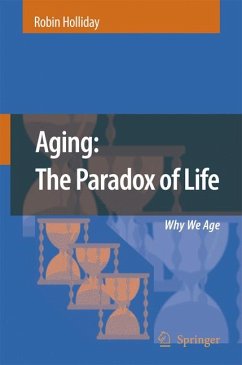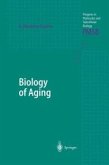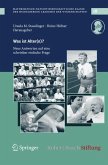Dieser Download kann aus rechtlichen Gründen nur mit Rechnungsadresse in A, B, BG, CY, CZ, D, DK, EW, E, FIN, F, GR, HR, H, IRL, I, LT, L, LR, M, NL, PL, P, R, S, SLO, SK ausgeliefert werden.
Hinweis: Dieser Artikel kann nur an eine deutsche Lieferadresse ausgeliefert werden.
"Aging: The Paradox of Life, a new book by the scientist Robin Holliday, dispels ignorance by explaining in non-technical language the reasons for aging and the myth of excessive prolongation of life. He writes in an engaging style and with clarity, appealing to the general public and scientists alike." (Medical News Today, July, 2007)
"A slim book that serves as a reality check for the hyperbole and misinformation surrounding attempts at slowing or preventing senescence. ... Written in mostly nontechnical language for a general audience, the book consists of 16 brief chapters, a short list of scientific references, and a glossary. ... Aging: The Paradox of Life capitalizes on a fascinating topic of interest to everyone. The book is a quick read but geared toward a general audience ... ." (Tony Miksanek, Journal of the American Medical Association, Vol. 298 (4), 2007)
"Aging is no longer an unsolved problem in biology ... . The book succeeds in one regard ... questions and others important in aging research are introduced in language accessible to the non-expert ... . It seems likely that most researchers in the aging filed would agree with the author ... . In the end, we are left with a colorful and entertaining just-so story about aging, evolution and the meaning of life that provides insight into the world-view of the author ... ." (John Tower, BioEssays, Vol. 29 (11), 2007)
"Books about ageing are coming thick and fast as the implications of an ageing population become evident. Many are for academics, while others aim for a popular audience. This book attempts to reach both. ... Would I recommend this book to students? Yes ... . Would I recommend it to a layperson? Again, yes. ... it is a good read." (Anthea Tinker, Times Higher Education Supplement, November, 2007)
"This is a single-authored discussion of aging, its causes, mechanisms, and implications, written for a lay public. Its purposeis to explain the mechanisms of aging and to dispel exaggerated claims of anti-aging medicine. These are worthy objectives and the book meets them all in style. ... The elegant British style of biological writing evident here makes this book a particular pleasure to read. For those working in the field of aging without an extensive biomedical background, this is a really excellent read." (David O. Staats, Doody's Review Service, April, 2008)
"This is a short popular book written by a famous geneticist and biogerontologist. ... In just 132 pages, he presents to general readers his personal understanding of the biological aging process ... and many other topics, such as the origin of religion and human warfare. ... Overall, this volume may be of interest to the general public, as it helps to balance the current bold optimistic expectations for the future of human life span and life extension with a healthy dose of skepticism." (Leonid A. Gavrilov and Natalia S. Gavrilova, The Quarterly Review of Biology, Vol. 83 (3), September, 2008)









